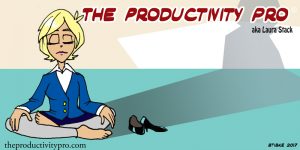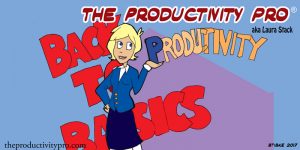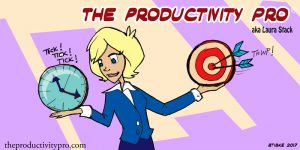
“Multitasking: the art of doing twice as much as you should half as well as you could.” – Anonymous Wouldn't it be great if you could multitask as well as a computer? If you could partition your brain to handle multiple tasks at once, you'd surely achieve peak productivity and get much more work done at the office. This idea became pervasive back in the 1980s and 1990s, as computers became ubiquitous and indispensable. But while computers made us more productive, today's experts will tell you there's a great deal wrong with the idea of multitasking. First, even most computers don't really multitask; they just switch from one task to another very, very fast. And we all know what happens when you ask a computer to do too much at once. Everything slows to a crawl, until the system either … [Read more...]











